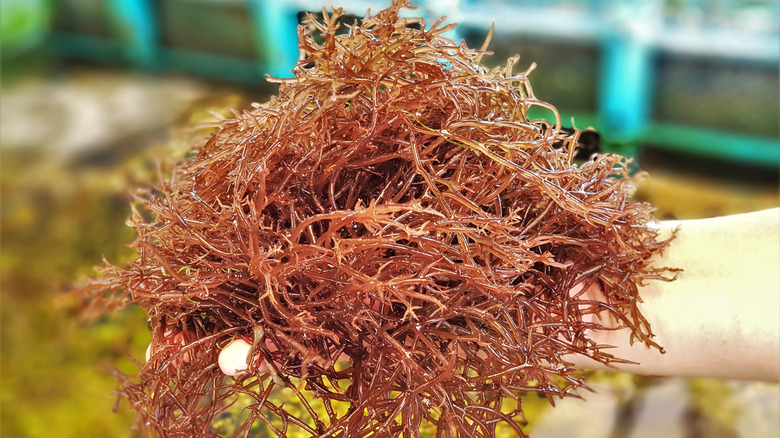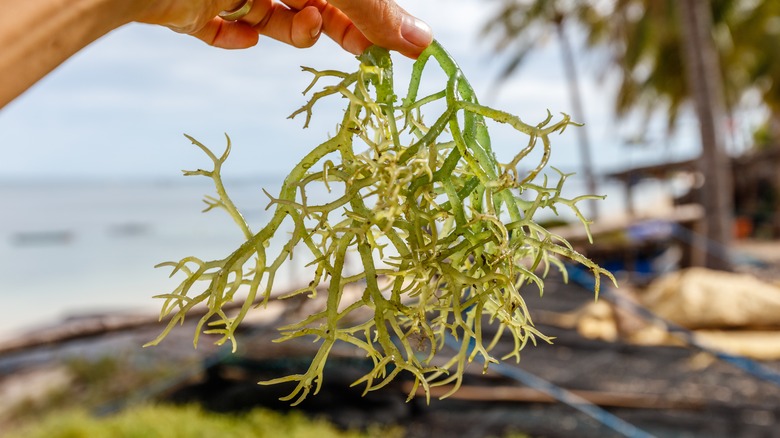Seaweed Farms Could Be The Future Of Food, According To New Study
The importance of addressing food insecurity has long been a conversation across the globe. In 2021, the World Bank reported that access to adequate food remained a high concern with 30% of the world's population lacking those resources. While alternative protein sources or technological advancements could help alleviate some of these concerns, farmers are often looking beyond the traditional fields for viable crops. Seaweed farms could be an option that is waiting to be harvested.
While some people might enjoy a seaweed salad and others appreciate the brittle texture that dried seaweed offers, seaweed farming may not be limited to just a handful of applications. As Food Ingredients First reported, several companies have explored seaweed's uses. From New Zealand's NewFish meat-free charcuterie to Cargill's seaweed powder which accentuates the creamy textures in food, there are many ways this cultivated crop can be implemented. That versatility lends itself to the concept that seaweed farming might be the bountiful food solution, and a recent study seems to support that assertion.
Is seaweed farming a food savior or just a serving of hype?
According to the study published in Nature Sustainability, farmed seaweed could help offset land crops, reduce agricultural greenhouse gas emissions, and be a food supplement for various groups. The study believes that even a 10% increase in seaweed consumption could make a substantial offset in farm land. While the ocean might be seen as an untapped resource, many people still need to buy into the concept of eating seaweed as a staple in their diet. As The Guardian reported, the success of seaweed farming relies on people eating more vegetables. If that cultural shift happens, increasing seaweed production could be a sustainable option and possibly could help to alleviate some food insecurity concerns.
Still, while Carlos Duarte, a researcher and professor in biological oceanography and marine ecology, argued to Time that seaweed farming is a viable way to feed the world's population without harming the environment, not everyone agrees with that assertion. Utopia.org raises concerns regarding the potential impact on ecosystem diversity. From impacting the sea floor to barriers to animal migration, the location, methodology, and implementation need to be considered before large portions of the ocean are dedicated to harvesting this crop. Discussing food alternatives in an effort to fight food insecurity and promote sustainability can be a flavorful conversation but the concept needs to balance all the components so as not to offer a solution only to create another problem.

